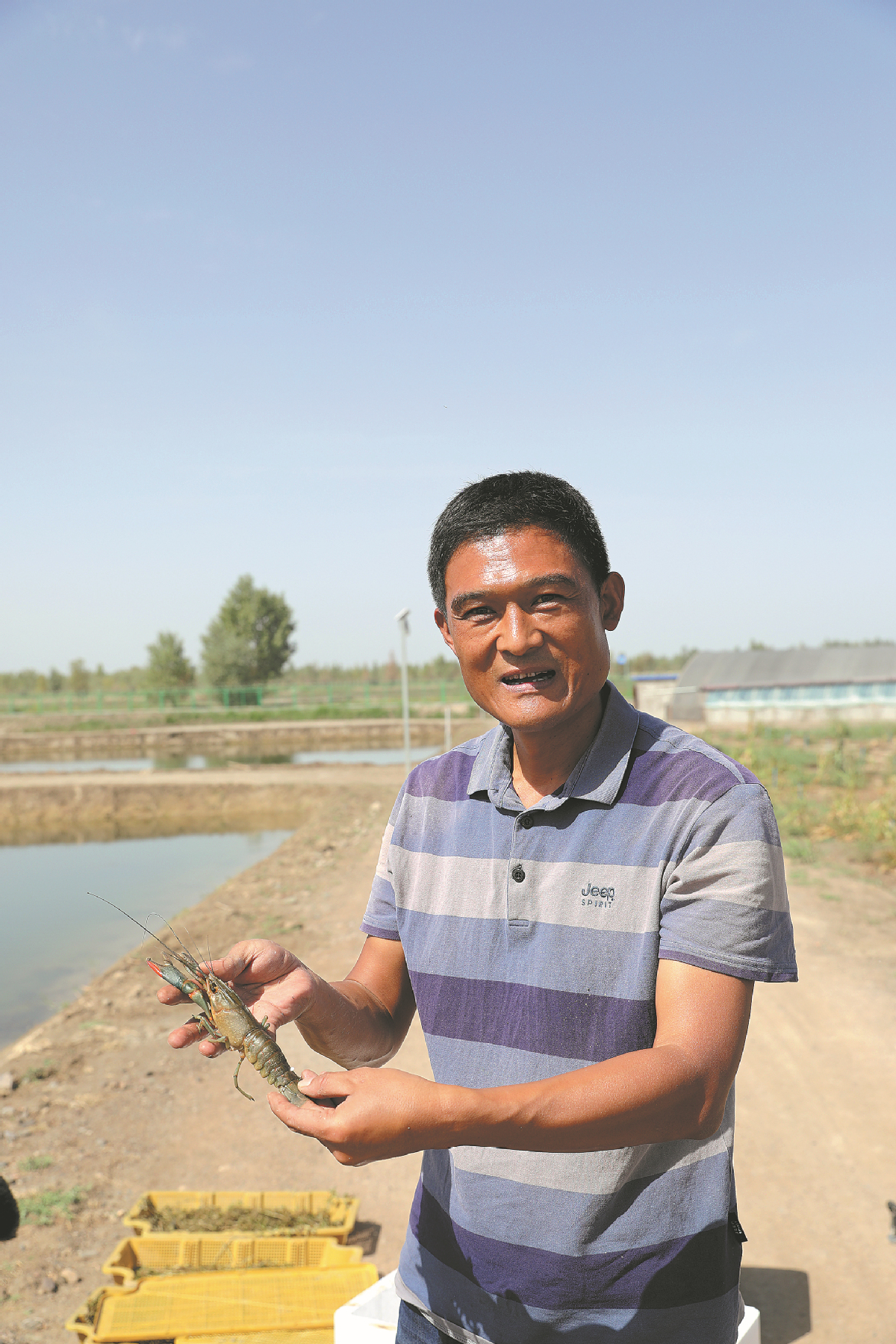In the Kashgar prefecture of the Xinjiang Uygur autonomous region, nestled beside the arid expanse of the Taklimakan Desert, lies Makit county, where farmers cultivate an unexpected aquatic delicacy — Australian freshwater crayfish.

This unusual achievement is the result of the dedication of Zang Yundong, 49, a cadre hailing from Rizhao, Shandong province, who embarked on a three-year mission to bolster Xinjiang's development in March 2020.
"Upon arriving in the town, I began contemplating ways to enhance the locals' quality of life," said Zang, who served as a deputy township head in Makit county.
Zang's comprehensive field research unveiled vast untapped tidal wetlands formed by a river coursing through the town.
This ecosystem inspired him to envision aquaculture as a new industry to stimulate economic growth.
With prior experience overseeing the fisheries industry in Lanshan district of the coastal city of Rizhao, Zang brought a wealth of knowledge to the area.
"Upon conducting quality tests on the water, we discovered it was ideal for cultivating aquatic products," he said.
He then studied the potential of the Australian freshwater crayfish market during a visit to Yutai county in Shandong, where he forged preliminary agreements with an aquaculture company to start Australian freshwater crayfish farming in Xinjiang.
In March 2021, amid the lingering chill of early spring, Zang and local farmers began building ponds for crayfish rearing. He oversaw every facet of pond construction, from pipeline installations to water drainage.
"Water leakage due to saline-alkali soil posed a big issue," said Zang.
Collaborating with experts from the aquaculture technology major at Rizhao Polytechnic, Zang and his team resolved the leakage problem by implementing a membrane method utilized in salt field ponds by the seaside, effectively mitigating sand seepage.
Two months later, crayfish fry was introduced into the ponds. Cherishing these delicate creatures, Zang sacrificed his rest time to monitor the ponds daily and ensure the fry had optimal growth conditions.
"The initial attempt is crucial because success signifies the transformation of unused wetlands into fertile grounds," he said.
The demanding lifestyle and high-pressure work environment took a toll on his health, resulting in over 10 kilograms of weight loss.
Zang collaborated with three aquatic farming students from the college to transform a small cabin near the ponds into an office for monitoring water quality, temperature, lobster health and pest conditions.
Zang's crayfish farming operation eschewed the use of chemical substances, opting for a sustainable model where water utilized for crayfish rearing was repurposed to irrigate farmlands and maximize water resources.
The trial crayfish farming initiative proved successful in October 2021 when the initial batch of lobsters got sold out within 10 days.
With promising market prospects, expert technical support and comprehensive services, the cultivation of Australian freshwater crayfish kindled a sense of optimism among the local community.
Leading a team of technicians, Zang conducted 12 aquaculture training sessions over two years, empowering 480 individuals to excel in lobster farming. He also authored Australian Freshwater Crayfish Farming Technical Manual to serve as a comprehensive guide to the local populace.
"The individuals I have trained have emerged as the technical backbone of local Australian freshwater crayfish farming," Zang said proudly.
zhaoruixue@chinadaily.com.cn